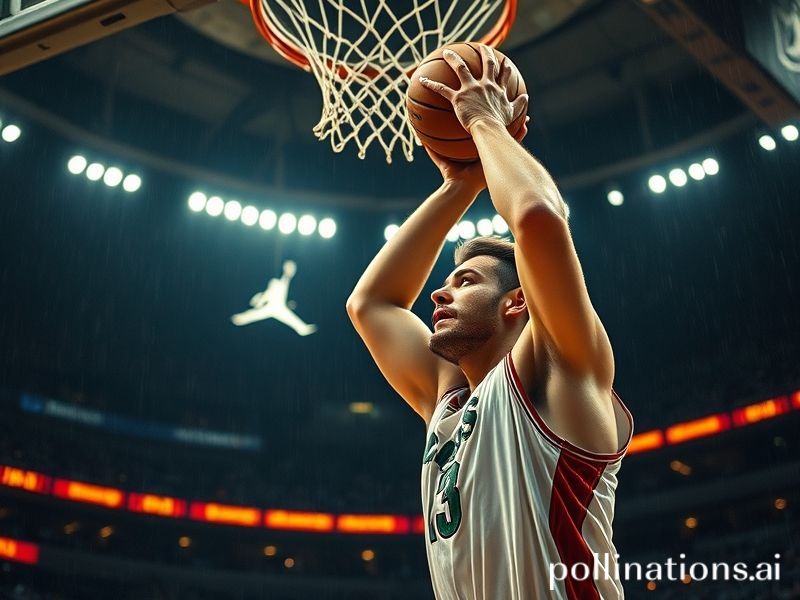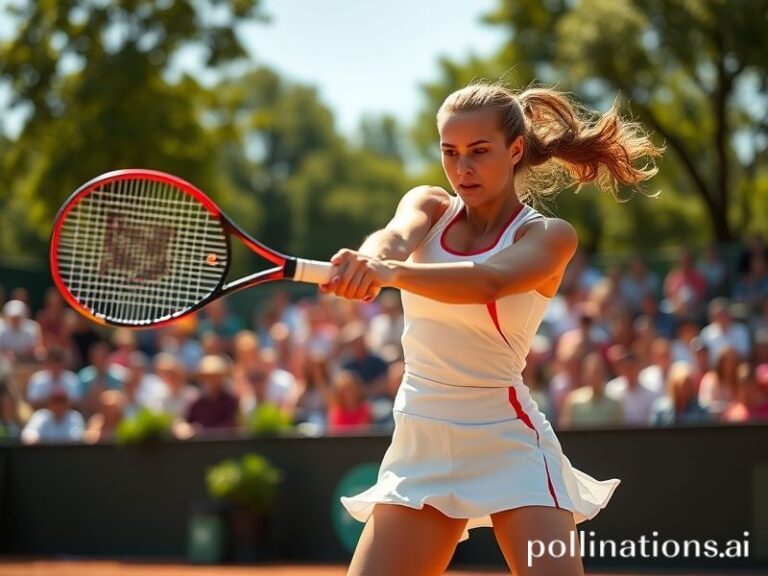Luka Dončić: The Balkan Export That Outgrew the World
The Slovenian Export No Customs Form Could Ever Contain
Luka Dončić is what happens when a small Alpine country, previously famous for ski jumps and being the birthplace of Melania Trump, decides to weaponize irony. At twenty-five, the man has already turned the Dallas Mavericks into a Balkan outpost and the NBA’s marketing department into a multilingual crisis-management firm. Somewhere in Ljubljana, a bureaucrat is quietly updating the national GDP spreadsheet under the line item: “Teenage wizard who now earns more than our entire defense budget.”
Europeans—those masters of condescension toward American “sportsball”—have taken to setting 3 a.m. alarms with the same devotion they once reserved for Champions League finals. Bars in Madrid that wouldn’t show an NBA game if LeBron himself bought the tapas now project Dončić in 4K, because nothing says Iberian pride like watching a Slovenian torch your national league alumni on a nightly basis. Meanwhile, Chinese streaming platforms reportedly pay by the pirated pixel; viewership data is classified somewhere between “state secret” and “whatever keeps the kids from rioting.”
Globally, the Dončić economy is the rare growth sector that isn’t immediately torpedoed by central banks. Sneaker drops sell out in minutes, then reappear on StockX priced like vintage Yugoslavian bonds. The Slovenian tourism board has stopped pretending the Julian Alps are the main attraction; their new pitch is literally “Come for the castles, stay because Luka might be home for the weekend.” Even the Swiss, who usually require three generations and a notarized affidavit to grant residency, are rumored to be weighing a special “athlete of geopolitical significance” visa—mostly so they can list him as a sovereign asset next to chocolate and clandestine bank accounts.
All of this would be merely cute if it weren’t occurring against a backdrop of supply-chain collapses, proxy wars, and climate forecasts that read like apocalyptic haikus. Yet somehow, a 6’7″ man with the body language of a hungover philosophy major has become the planet’s most reliable source of collective serotonin. When he drops a 40-point triple-double, Twitter briefly forgets whose missiles are pointed where. For three hours, the algorithmic doomscroll gives way to slo-mo replays and Slovenian curse words that autotranslate into pure whimsy.
There is, of course, the obligatory American wrinkle: the Mavericks are owned by a casino magnate who treats labor negotiations like blackjack. Every time Dončić signs another max extension, a Vegas odds board recalculates the over/under on how long before the star demands a trade to a team that actually defends. Bookmakers from Macau to Malta now list “Luka to the Lakers” as a safer bet than most municipal bonds.
Europe’s old football monarchies watch this with the queasy recognition that their own talent pipelines are being strip-mined by a league whose salary cap is larger than the GDP of Malta. Real Madrid’s basketball branch, where Dončić first toyed with grown men at sixteen, has become a de facto prep school for the NBA. The continent that invented the sport now serves as a sorting hat for American franchises—Hogwarts, but with better pastries and worse labor protections.
And yet, for all the cynical mechanics, the kid himself remains stubbornly unbothered. He plays with the air of someone who knows the whole spectacle is ridiculous but figures he might as well enjoy the catered flights. Asked recently about carrying a nation’s expectations, he shrugged and said, “It’s just basketball,” which is either the most Zen statement of the decade or proof that irony has achieved sentience.
If the global order collapses tomorrow—say, because someone misplaced the nuclear football in a Mar-a-Lago buffet—archaeologists digging through the rubble will find two artifacts intact: cockroaches and bootleg Dončić jerseys. The jerseys will still be priced at a premium. The cockroaches will be reselling them.







